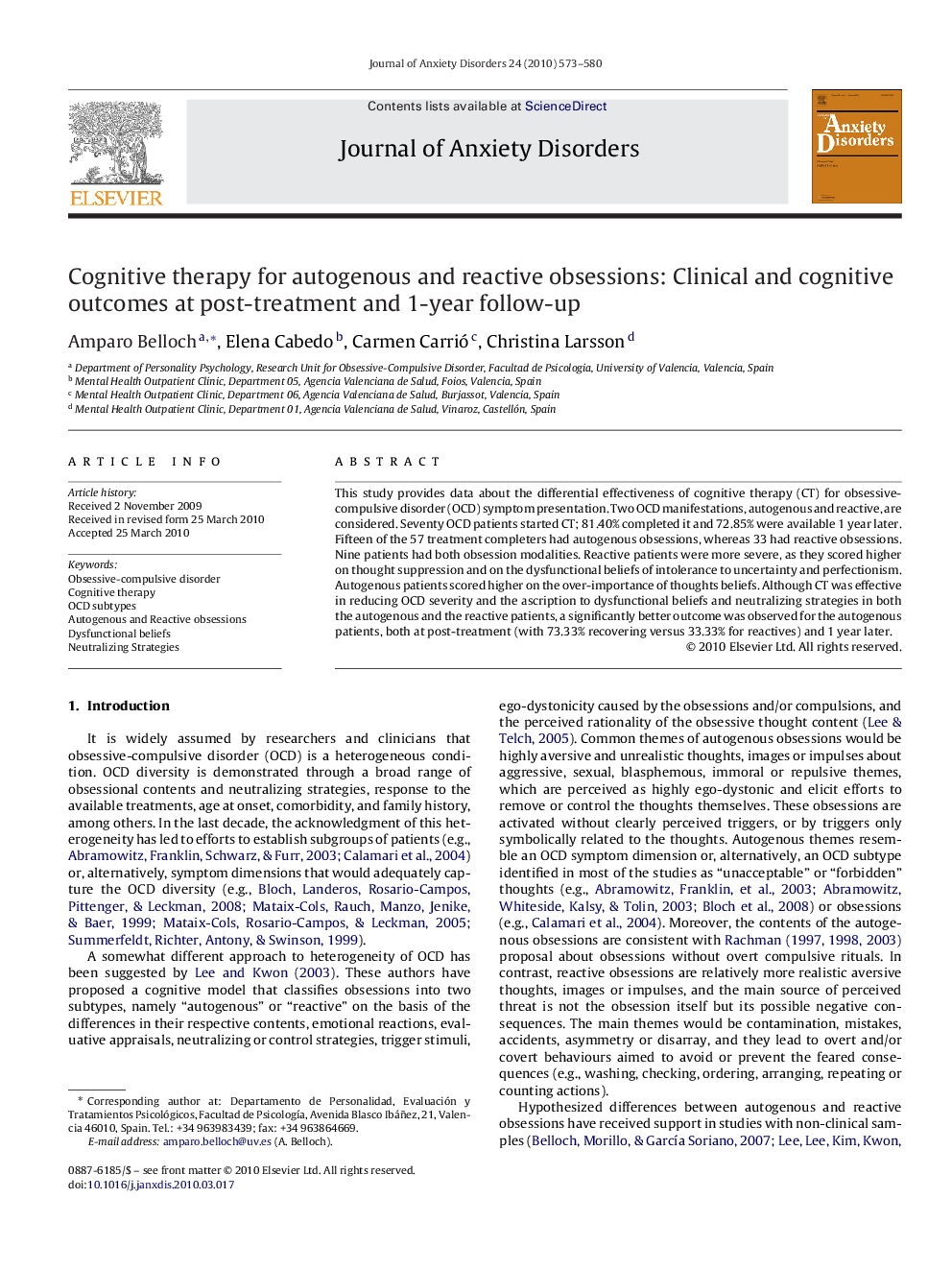| Article ID | Journal | Published Year | Pages | File Type |
|---|---|---|---|---|
| 10447709 | Journal of Anxiety Disorders | 2010 | 8 Pages |
Abstract
This study provides data about the differential effectiveness of cognitive therapy (CT) for obsessive-compulsive disorder (OCD) symptom presentation. Two OCD manifestations, autogenous and reactive, are considered. Seventy OCD patients started CT; 81.40% completed it and 72.85% were available 1 year later. Fifteen of the 57 treatment completers had autogenous obsessions, whereas 33 had reactive obsessions. Nine patients had both obsession modalities. Reactive patients were more severe, as they scored higher on thought suppression and on the dysfunctional beliefs of intolerance to uncertainty and perfectionism. Autogenous patients scored higher on the over-importance of thoughts beliefs. Although CT was effective in reducing OCD severity and the ascription to dysfunctional beliefs and neutralizing strategies in both the autogenous and the reactive patients, a significantly better outcome was observed for the autogenous patients, both at post-treatment (with 73.33% recovering versus 33.33% for reactives) and 1 year later.
Related Topics
Health Sciences
Medicine and Dentistry
Psychiatry and Mental Health
Authors
Amparo Belloch, Elena Cabedo, Carmen Carrió, Christina Larsson,
